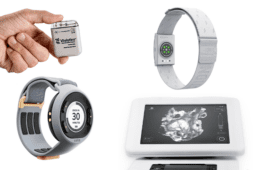For patients with Poland syndrome – a rare congenital condition affecting the chest muscle – computer-aided design (CAD) techniques can be used to create custom-made silicone implants for reconstructive surgery of the chest, reports a paper in the August issue of Plastic and Reconstructive Surgery, the official medical journal of the American Society of Plastic Surgeons (ASPS).
The new technique provides good cosmetic outcomes and improves quality of life for patients with chest deformities related to Poland syndrome, according to the study by Jean-Pierre Chavoin, MD, of University Hospital Rangueil, Toulouse, France, and colleagues. They write, “The technique is simple, reliable, and yields high-quality results, and 3D CAD has optimized our reconstruction.”
Custom-Made Implants Provide New Alternative for Treating Chest Deformity
Poland syndrome is a rare malformation that causes varying chest abnormalities, often with accompanying malformations of the hand. In these patients, largest muscle of the chest (pectoralis major) is absent or underdeveloped on one side, causing visible deformity. Poland syndrome occurs in about 1 out of 30,000 births; about three-fourths of affected patients are male.
Chest reconstruction in patients with Poland syndrome poses complex challenges for the surgeon. A wide range of procedures have been used, such as muscle flaps or silicone implants made from plaster molds. In recent years, Dr. Chavoin and colleagues have developed an innovative, minimally invasive approach: using 3D modeling with CAD technology to create customized silicone implants.
The implants are prepared according to a four-step process. A thin-section computed tomography scan of the patient’s chest is obtained. The digital data are used to create a 3D CAD model of the implant, “virtually correcting” the patient’s chest deformity. A prototype of the CAD model is prepared using 3D machining and used to cast a rubber silicone elastomer implant.
After sterilization, the customized implant can be placed under the patient’s skin by a relatively simple surgical procedure.
Since 2007, Dr. Chavoin and colleagues have used 3D CAD silicone implants to treat chest deformities in 68 patients with Poland syndrome: 46 males and 22 females, average age 26 years. To optimize the cosmetic results, most patients underwent additional procedures such as fat transfer (lipofilling) or, in women, breast implants.
Both men and women reported high satisfaction rates – more than 90 percent of patients rated their cosmetic outcomes as good or excellent. On a standard questionnaire, patient ratings indicated improvement in social and emotional aspects of quality of life. Some patients said they felt discomfort related to the implant during intense sporting activities. The implants and patient outcomes remained stable during long-term follow-up in 41 patients.
While most of their patients were operated on as adults, the researchers note that the procedure could be performed at younger ages – just after puberty – helping to avoid some of the psychological difficulties that can occur in adolescence and young adulthood. If the patient outgrows the implant, it can be replaced, or other procedures can be performed to improve the appearance of the chest.
Dr. Chavoin and colleagues previously reported the successful use of custom-made implants in patients with pectus excavataum (“sunken” or “funnel chest”) deformity. Since developing their CAD implant approach, the researchers have “completely abandoned” other procedures for Poland syndrome, each of which has disadvantages and limitations. They conclude, “Obtaining an excellent result remains difficult in patients with Poland syndrome, but 3D CAD has optimized our reconstructions.”




